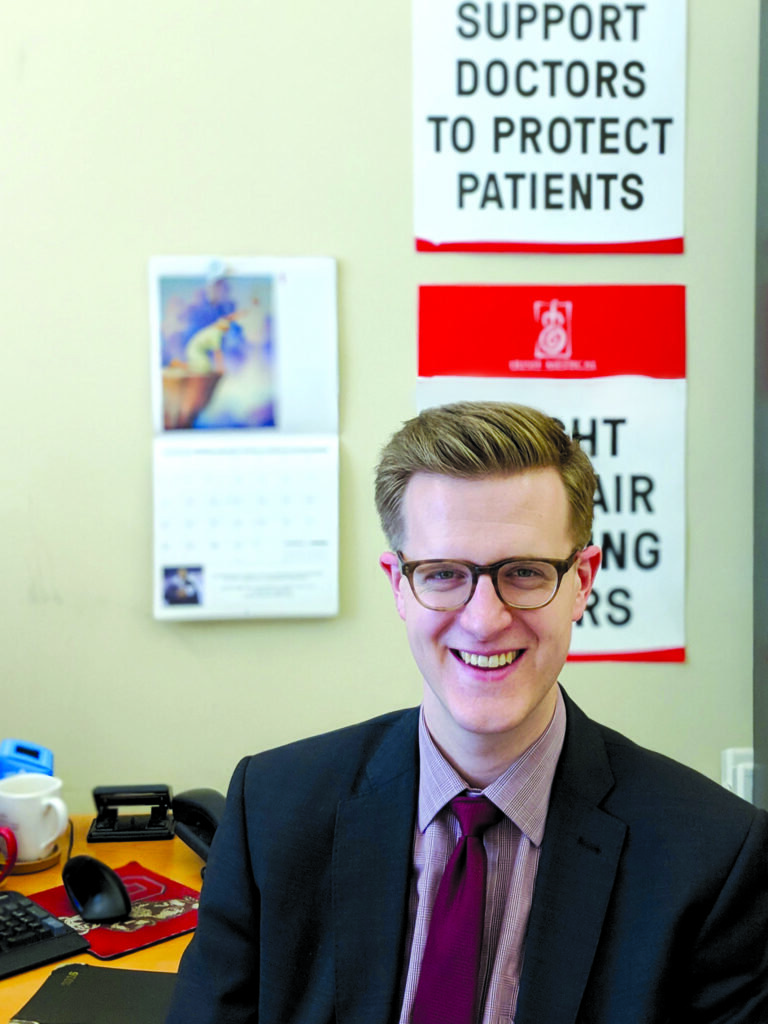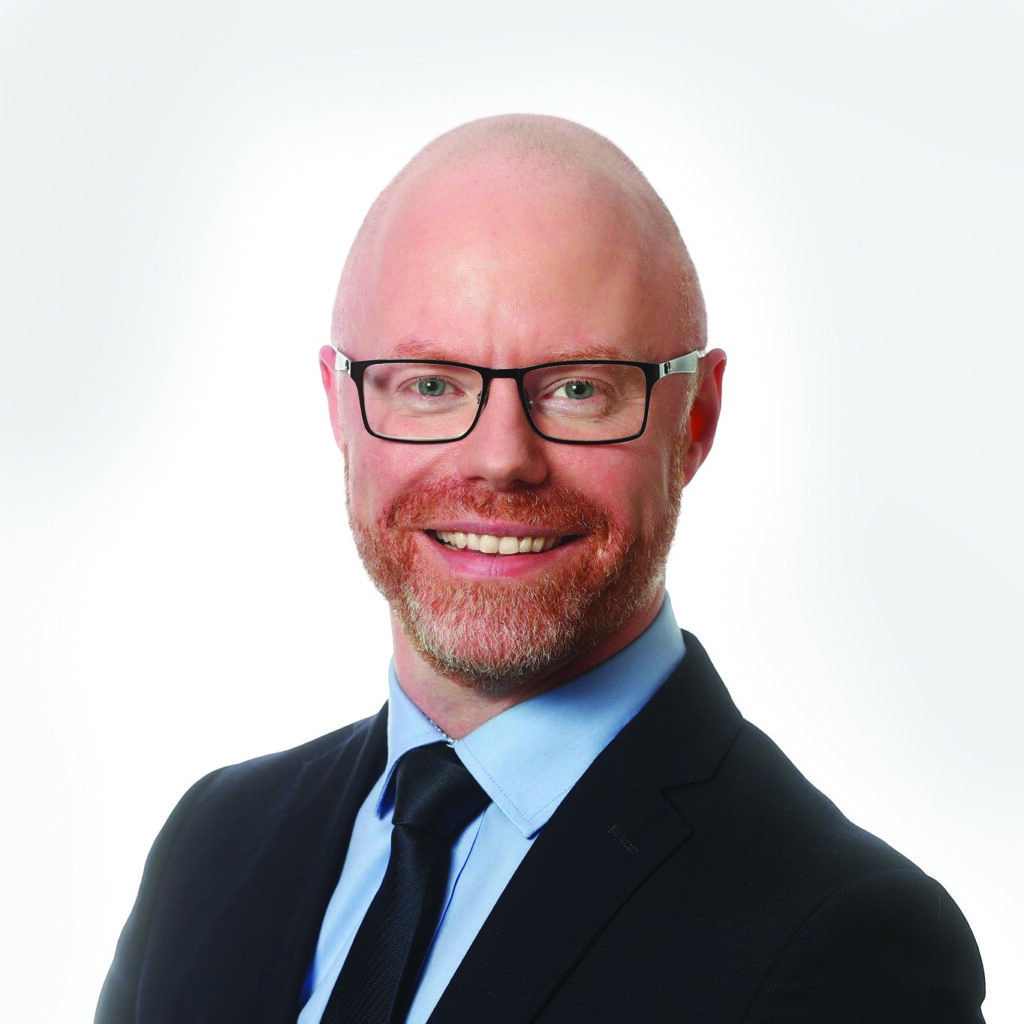Much remains to be done to address unsafe NCHD working hours, with the integrity of the data, the culture within the medical profession, and the political will for reform, among the stumbling blocks. Catherine Reilly reports
The alleged cover-up of NCHD shifts exceeding 24 hours, on the instruction of some hospitals, is being investigated through a new IMO survey. It is a concern that casts further doubt on HSE compliance data for the 24-hour maximum shift and 48-hour average working week under the European Working Time Directive (EWTD).
As reported in the Medical Independent (MI) in 2019, the IMO has contended that many hospitals were submitting NCHDs’ rostered hours, rather than actual hours worked, to the HSE. But this is not an abstract paper trail; it impacts lives. Fatigue, career change, emigration, deteriorating wellbeing and mental health – and medical error – are all associated with excessive and unsafe working hours in healthcare.
“To be honest, I can’t over emphasise the negative effect 24-hour in-house call shifts had on me,” a doctor, who has completed basic specialist training (BST) but plans to leave hospital medicine, told MI.
According to an IMO survey of NCHD members on hours worked in September 2019, around half reported working over 24 hours, compared with 3 per cent non-compliance recorded in HSE statistics. The HSE reported 81 per cent compliance with the 48-hour maximum working week, compared with 14 per cent compliance cited by the union.
The HSE as employer is an important stakeholder in resolving this issue, but it is not the only one. Relevant Government departments, training bodies, and the Medical Council all have key responsibilities in relation to the working conditions of doctors. But a shared responsibility seems to have invited a lack of ownership.
Inspections
The Medical Council, for instance, inspects clinical sites against standards for intern and specialist training and has the power to remove approval for a training site. Under ‘safe working environment’ it asks for information about EWTD compliance but does not tend to interrogate the information.
As an example, an inspection report of training standards at Beaumont Hospital, Dublin, in 2019 referred to data provided which indicated 77 per cent overall compliance with the 48-hour week. “Some trainees reported that they regularly work in excess of the EWTD criteria,” according to the report, which recommended that “the clinical site should continue to make every effort to ensure compliance with the EWTD”.
The Council issued the same recommendation for Our Lady of Lourdes Hospital, Drogheda, despite trainees informing the inspectors that some SHOs had been rostered to work a continuous shift pattern of 19 days, during periods of staff absence. MI asked the Medical Council if it trusted the HSE’s EWTD compliance data and awaited a response at press time. Responses were also awaited from the HSE, RCPI, and RCSI.

Survey
The IMO has sharpened its commentary on the matter in the past year to 18 months. The union’s NCHD committee identified working hours and EWTD compliance as its priority for 2020, prior to the onset of the pandemic. Speaking to MI about the latest concerns, IMO Industrial Relations Officer Mr Paul Maier said it appeared some hospitals instructed doctors to record their working hours “in a different configuration” to how they were discharged.
A new NCHD survey, which was launched by the IMO recently, includes a question aimed at identifying the sites in question. “We have heard anecdotally of people being told they are not to record 26 hours consecutively but rather to record 24 hours and then to record the additional two hours on another day, when they were not working,” Mr Maier told MI.
“This is an instruction issued by the hospital and this is something that is obviously really concerning and, in many ways, is fraud. It is certainly not accurate reporting. It carries clinical concerns, as well as financial concerns and regulatory concerns.”
While he has heard of doctors who have called into a HR office, shown their timesheet and been told ‘you can’t record it in this way’, it may not be communicated as explicitly. The implication was that if doctors rocked the boat, obtaining pay for all hours worked could be troublesome. The latest NCHD survey will again seek information on compliance with the maximum 24-hour shift and 48-hour week and rest breaks, etc.
In addition, doctors are being asked if they would be willing to take a case in respect of any breaches they report in the survey. This would allow the IMO to build a bank of individuals willing to take cases on an individual, collective or anonymous basis.
While the Organisation would not necessarily need to file cases with the Workplace Relations Commission, having the ability to do so would be a useful negotiating tool to push the issue forwards.
Minister Donnelly
Allegations of falsification of doctors’ working hours are not solely the preserve of a representative organisation, however. In April 2018, the now Minister for Health Stephen Donnelly issued a strongly worded statement calling for an “immediate investigation” into concerns raised by NCHDs that hospitals were falsifying their timesheets.
Mr Donnelly – then the Fianna Fáil health spokesperson – said it was “an incredibly serious charge”. “I have heard directly from a number of junior doctors who have said that their timesheets are being falsified by their hospitals. They are particularly frustrated with the fact that some hours are being recorded as training hours, when the training time was not in fact given to them. Rather, they have said, these so-called training hours are hours they simply work as part of their shifts,” he outlined in the statement.

Although not explained in the statement, protected training time – while considered working time for the purposes of payment, etc – is not counted as working time in regard to Ireland’s EWTD obligations on the 48-hour week (it is still reckonable as working time for other EWTD metrics, such as maximum shift length. Also, protected training time must be truly protected to be subtractable).
Mr Donnelly said he planned to write to then Minister for Health Simon Harris requesting “an immediate investigation”. “I have also asked him to clarify whether he or any of his predecessors were made aware of these very serious issues.” He said the allegations were known at a “senior level” in the HSE. These issues are now on Minister Donnelly’s desk.
A response from the Department of Health referred to HSE plans to reconvene the national EWTD verification group, which had not met during the pandemic. It said HSE Acute Operations regularly reviewed data with Hospital Groups.
‘Dread’
Minister Donnelly’s press statement in April 2018 did not explain why timesheets would be falsified. Similarly, while raising concerns about the impact of service provision on training, there was no reference to an even more fundamental threat to doctors – namely to their health and wellbeing.
The interviewee at the start of this article, who preferred not to have their name published, embarked on a BST scheme “as an enthusiastic energetic doctor”. However, their outlook changed “very quickly”. “I was unable to recover between shifts and my mental health deteriorated. I began to enter the hospital with absolute dread and my goal became survival until [the end of their BST contract].” This doctor usually had one 24-hour shift per week. But often there could be two such shifts per week, due to leave and inadequate cover.
“For example, the frequency increased if an NCHD was pregnant and, as such, unable to cover call shifts. In one of my posts where I was the rota lead, I actively searched for locum cover for empty call shifts due to staff shortages as HR were not advertising for same. I was ‘lucky’ in that said hospital allowed locum cover – I am aware of many hospitals where this does not happen and in-house staff are forced to cover extra shifts, often at very short notice.”
This doctor said: “I definitely feel the training body continues to emphasise individual resilience over systemic reform. Resilience has become a buzzword.” After one year of BST the doctor voiced their difficulties to the training body – in this instance, the RCPI.
“The response I received was that I should focus on eating healthy, sleep hygiene, and increasing exercise. To be honest, I was deflated following that interaction. It showed a complete lack of understanding of current working conditions for NCHDs. It also made me question myself even more – I was the ‘problem’, I was doing ‘something wrong’.”
However, the doctor added that they were recently contacted by the RCPI Department of Health and Wellbeing – and they were very positive about this engagement.
“There are proactive people within the training bodies who are working with stakeholders to remove 24-hour shifts and I hope that signals real change.
“Interestingly, there is push back from some NCHDs regarding the removal of 24-hour shifts, though it seems to be a trend among SpRs nearing the end of training. It is possible that they are more concerned with the difficulties faced by consultants in adequately staffing their teams. However, 24-hour shifts should not be a solution to staff shortages.”
This doctor confirmed that a 24-hour shift often became 25-26 hours with handover. Some hospitals mitigate this situation with a later start time, which generally reduces the shift to 18-20 hours. It is a “move in the right direction”. “Though any 24/7 service will struggle to create an ideal solution for staffing, looking at other specialties and countries, I think the best option to hand is the night shift model.”
This doctor was never asked to under-record hours and was paid for the excess although they had heard this is not always the case in some hospitals. Along with the personal impact on health and wellbeing, excessive working hours are causing doctors to emigrate or leave hospital medicine, they confirmed.
“I find it amazing that so many people actually remain in the hospital system here – Ireland is full of very hardworking NCHDs, but we can’t be expected to sustain a broken system.”
While community-based medicine also has significant challenges, this doctor feels they “will be able to tackle anything that doesn’t involve staying awake for 24-plus hours, on my feet assessing and treating patients, often without a chance to even eat”.
Insight
Another doctor, Dr Domhnall McGlacken-Byrne, recently wrote an article on NCHD working hours for the Irish Examiner titled ‘Doctor fatigue puts patient safety at risk’. His article provided a valuable insight to the wider public on the continuing preponderance of 24-hour shifts and the adverse effects on doctors – and risk to patient safety.
“It was something that bothered me,” Dr McGlacken-Byrne, who has completed BST in paediatrics, told MI. “I felt like it was something that most people [doctors] instinctively agreed with – that doctors shouldn’t be working 24-hour-long shifts routinely, but it wasn’t something that people necessarily articulated, for complex reasons.
“People don’t like to seem like they are moaning, people don’t want to seem like they are ‘weak’, ‘not able for it’. And I also think people are not exactly going to say, ‘oh I made this terrible error last night because I was tired’. So it has also got to do with error, blame and worry about that. It was always something I just noticed from the start of my training. It bothered me and I thought it was worth writing about.”
Dr McGlacken-Byrne emphasised the impact of extended shifts on patient safety and care. “I felt the care I provided towards the end of 24-hour shifts just wasn’t the same as what I was providing at the start, so that is what really animated me. But I also think there is the idea of physician welfare.
A couple of people got in touch with me after I wrote the article, and I think a lot of doctors really struggle and that is something we are not good at talking about either. A lot of doctors really struggle with their training and their mental health, their general wellbeing, and the intensity of the work is a big contributor to that.”
There is a cultural notion that working punishing hours is intrinsic to being a doctor. Doctors can believe this of themselves – and others may expect it of them.
“It has improved,” acknowledged Dr McGlacken-Byrne. “I mean, I have been only working for a couple of years but I think if you took the long view, it is better for us now than it was for today’s consultants when they were trainees….We might work 80- or 90-hour weeks, but we are not working 100- or 120- hour weeks like used to happen, so I think there has been improvement, but there is a long way to go.”
Dr McGlacken-Byrne agreed there was “definitely” a need for training bodies and the Medical Council (which inspects training standards at hospitals) to adopt a stronger approach on the issue.
What replaces the 24-hour shift, however? This is not easily answered. The body of research on alternative shift systems is unclear and open to question.
However, Dr McGlacken-Byrne emphasised that the evidence regarding human performance when sleep deprived was “crystal clear”. “As you enter hour 16, 20, 24, your level of performance is just not the same as someone who is well-rested and most importantly that decline in performance is not related to willpower; it isn’t related to your work ethic or how ‘strong’ or ‘weak’ you are.”
The profession needs to deliberate and form a consensus on the best way forward, according to Dr McGlacken-Byrne. “Even within committees I have been on and in rotas I have been a member of, there have been people with different opinions, who don’t find call all that bad, or who think shift work would be worse. That is why consensus is important.”
Fatigue and performance
He strongly believes a culture change is needed in respect to sleep, fatigue, and performance. Dr McGlacken-Byrne employed the analogy of hand hygiene – nowadays it is culturally inappropriate for a healthcare professional not to wash their hands and there are pop-up banners in hospitals that encourage patients to ask staff whether they have done so.
“If I went into a cubicle to see a patient and I didn’t wash my hands and they pulled me up on it, I would be really embarrassed because I know that is unacceptable and I would gladly wash my hands if I was reminded.
“Similarly a culture change needs to happen whereby it becomes less acceptable for a doctor to be exhausted, and I think that is something patients and carers and advocates need to think about– ultimately I think it should be a reasonable question to say, ‘you look exhausted; have you had any sleep?’ That is a cultural change that needs to happen.”
Unless the issue is addressed, doctor retention will remain problematic, he added. “I think the really burdensome call rotas are surely a huge driver of people dropping off training schemes and in turn, making staffing levels worse.
“Anecdotally, a lot of specialties where the rotas are the most challenging or where call is the most frequent, those are also the specialties where I know people have discontinued their training half way through because they felt they couldn’t do it, or they felt they wanted to prioritise other things. There is a vicious circle there and sooner or later you need to break that chain.”
At the IMO, Mr Maier agrees that an alternative course to the 24-hour shift should be plotted. It is a topic that a health and wellbeing working group under the aegis of the NCHD committee will interrogate in detail. “It is a very academic and clinical question. It is one that requires a degree of rigor and study beyond just asking people their opinion,” commented Mr Maier.
“One of [the working group’s] top priorities in the coming months is to undergo a thorough literature review on the topic of working shifts, from an occupational health and clinical perspective.… “I think we need to talk not only about what is legally permissible, but what is in the best interests of doctors – them being healthy and well is what helps them provide the services to their patients.
“Even in the meeting we had with that group, there is already robust debate. Doctors had differing views on what kind of shifts they prefer personally… similarly the literature can diverge widely. Some literature reviews say well, if you have an extended shift up to 24 hours, it reduces handover and it reduces the risk of doctor error towards patients, but on the other hand, it increases fatigue.
“And I think the big picture needs to be considered as well, and will be considered by that group, in that you can talk about individual shifts, and performance in individual shifts, but we are also talking about the health and wellbeing of doctors as they perform their shifts in weeks, months, years.”
Ultimately, hospitals are not conspiring to over-work doctors out of sheer badness. There are systemic problems around healthcare reform and staffing levels that are driving the situation.
“A larger reform, which includes the expansion of consultant numbers, filling of all consultant posts, which requires consultant pay parity, and the increase in training positions to be commensurate with Irish medical graduates we produce – those are the actual responses to resolve the EWTD problem,” summarised Mr Maier.
A strike for reform?
The 2013 NCHD strike led to an agreement between the IMO and health service management that included a compliance verification group with union representation. This national verification group has not yet met in 2020, but the HSE intends to reconvene the group, it is understood.
Under the agreement, shifts above 24 hours were to be eliminated by early 2014 and full compliance with the European Working Time Directive (EWTD) achieved during that year. The European Commission previously referred Ireland to the European Court of Justice (ECJ) over EWTD breaches in regard to NCHDs in training, but the Commission lost on a technical point. More NCHDs were hired and some progress was made, albeit from a baseline of highly excessive hours in many areas. But the acute hospitals system has remained some way off EWTD compliance.
Ireland could again be referred to the ECJ – a matter raised in briefing notes for Simon Harris when he was appointed Minister for Health in 2016.
The ECJ can impose significant fines on member states for non-compliance. However, the Commission has closed the infringement process against Ireland, so any further action is unlikely in the near term.
In 2017, HSE Human Resources issued a circular to senior hospital management after internal audits raised “concerns” regarding the “maintenance, accuracy, quality, and retention of data used for reporting of EWTD compliance” in respect of NCHDs and social care staff.
The national NCHD meeting at the 2019 IMO AGM discussed “increasing stories” of NCHDs working shifts in excess of 36 hours. The then HSE Director of Human Resources Ms Rosarii Mannion, who has since left her position, was present to hear these stories. At the meeting, NCHD committee Chair Dr Paddy Hillery said doctors continued to be “compelled to work hours in excess of what are the legal limits”.
He outlined that “we are unfortunately hearing increasing stories of some areas where people are working in excess of 36 hours as juniors, so that interns are being forced to work… in a situation that is unsustainable. I thought this was something in the past.”
At the time, MI asked Ms Mannion if she trusted working hour statistics from hospitals. She said “we’d have no reason not to” and that the reports were “all audited and validated”.
Last year, the Workplace Relations Commission (WRC) began a process evaluating NCHD working hours at Beaumont Hospital, Dublin, and University Hospital Kerry in connection with IMO concerns. IMO Industrial Relations Officer, Mr Paul Maier, said the union does not receive updates from the WRC under this process. Rather the WRC would engage with the hospitals directly. However, he said Beaumont had made significant efforts towards 48-hour compliance, especially for interns. At University Hospital Kerry, Mr Maier said he was not privy to the latest situation.
A “lack of record keeping generally, as to the number of hours people worked” had prompted concern. MI asked the hospitals for comment. None was received from Beaumont at press time. A spokesperson for South/SouthWest Hospital Group confirmed there was a WRC process in University Hospital Kerry in March 2019 (this was not only specific to NCHDs and encompassed other staff grades).
Subsequent to the WRC inspection, hospital management “fully committed to address the issues raised in achieving and implementing specific improvements to the management of NCHD rosters”. This has resulted “in current compliance with max 24-hour shift and average 48-hour week for interns, SHOs, and registrars”.













Leave a Reply
You must be logged in to post a comment.